Executive Courses
Upskilling Your Workforce through TDSI’s Executive Courses
TDSI’s Executive Courses under its Continuing Education arm look at domain-specific disciplines in systems thinking and systems engineering, as well as any in-trend/ emerging technologies, to upskill the Singapore defence workforce in line with the nation’s advocacy for lifelong learning. Embracing the digital transformation landscape today, participants will benefit from these courses, learning from subject matter experts from the defence technology community and/or academic institutions, on valuable topical knowledge and skillsets to manage real-world applications. This allows course participants to strengthen their capabilities and value-add to their employing organisations.
TDSI’s Executive Course “Military Navigation Systems Workshop” for Singapore’s Defence Technology Sector
Given the critical importance of navigation in modern military systems and operations that leverages on smart technologies, access to reliable navigation data is imperative while denying them to adversaries during military operations. The executive course on “Military Navigation Systems Workshop” aims to highlight the vulnerabilities in military navigation systems under different deployment scenarios, and share potential corresponding counter-measures. Participants from the defence technology community were appreciative of the knowledge gained from the workshop and acknowledged that the learning was highly relevant and impactful to their current field jobs/ projects. This workshop is well-recognised by the Professional Engineers Board and qualified for 6 Professional Development Units.
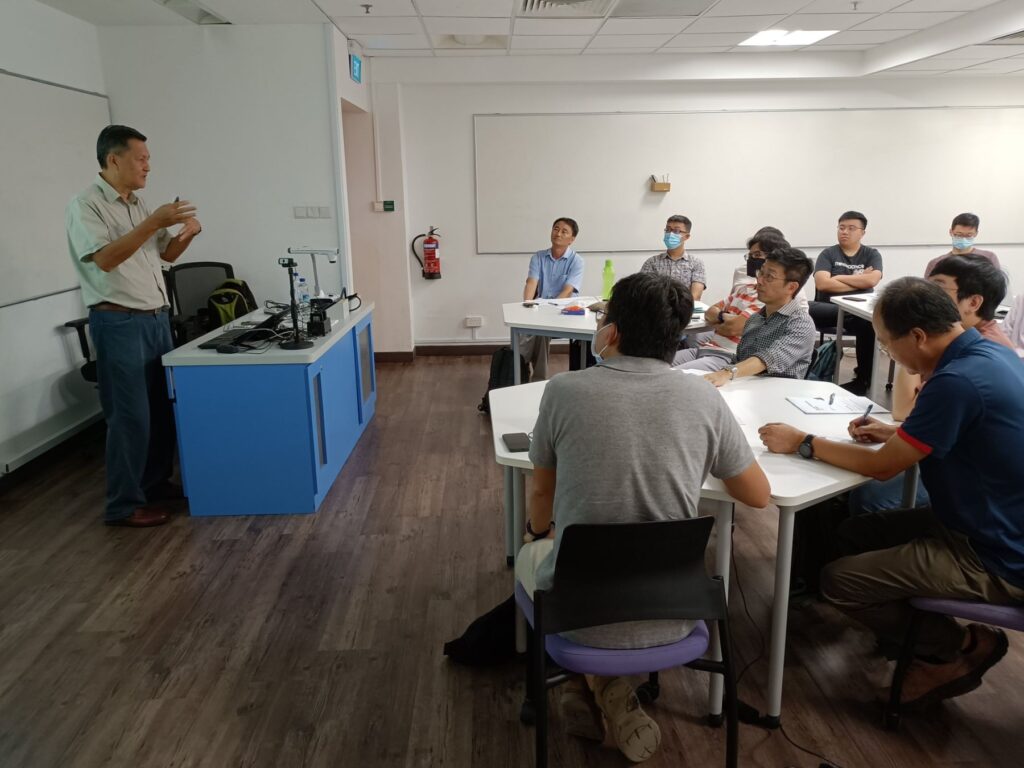
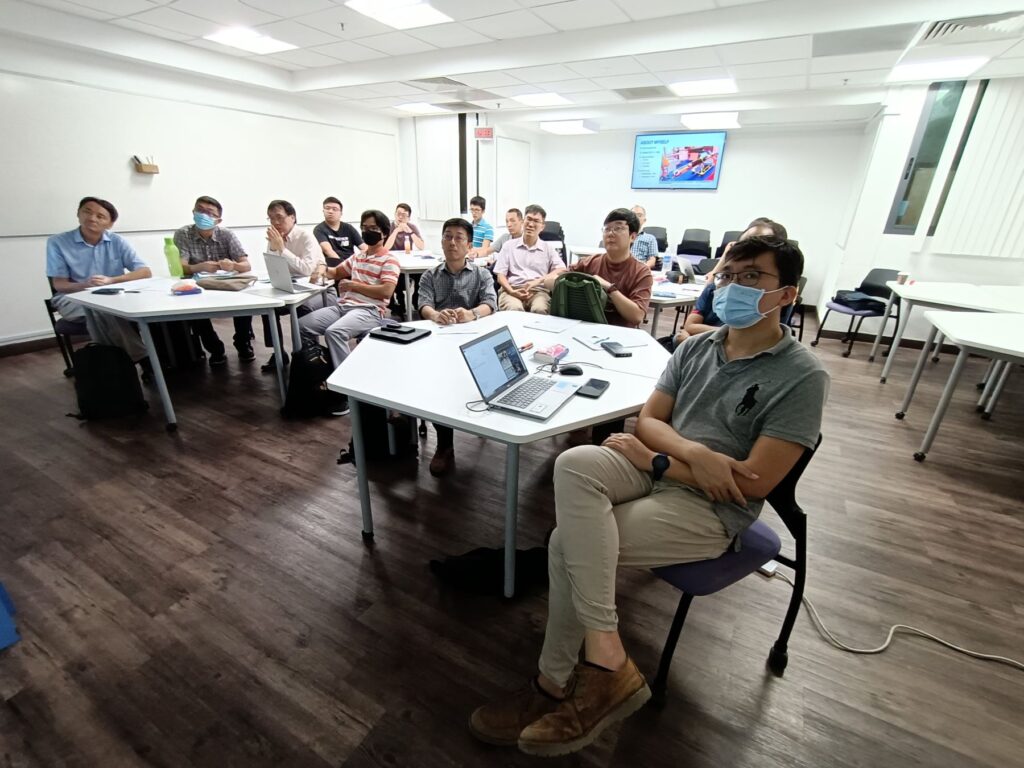
TDSI’s Executive Course “Systems Engineering and Analysis of Emerging Advanced Technologies for Defence Applications”
It is important for the Singapore defence forces to be at the frontier and be knowledgeable about emerging technologies for defence applications. The executive course on “Systems Engineering and Analysis of Emerging Advanced Technologies for Defence Applications” aims to present concepts and methods for engineering and analysing emerging advanced technologies, that include artificial intelligence and directed energy weapons, for defence applications. Course participants from the defence technology community have learnt and gained insights from the course that introduced concepts in complexity theory, strategic thinking, technology assessment, systems engineering and systems analysis. Course participants were appreciative that the learning gained have value-added to their current work with their primary affiliated organisations in the defence eco-system.
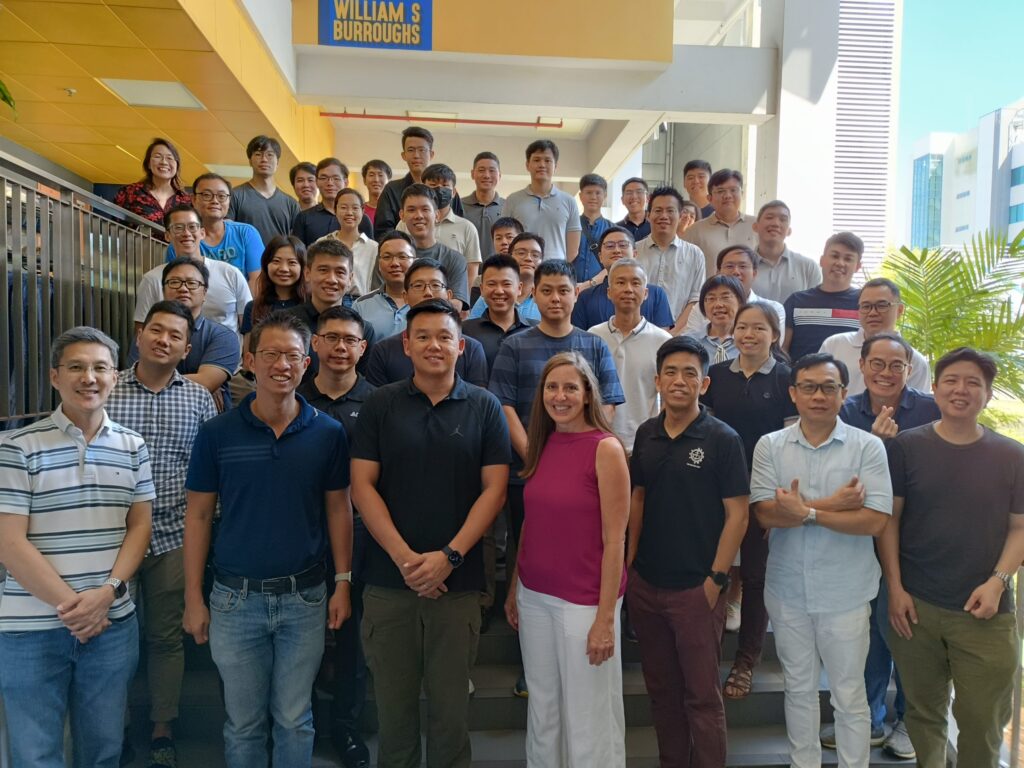
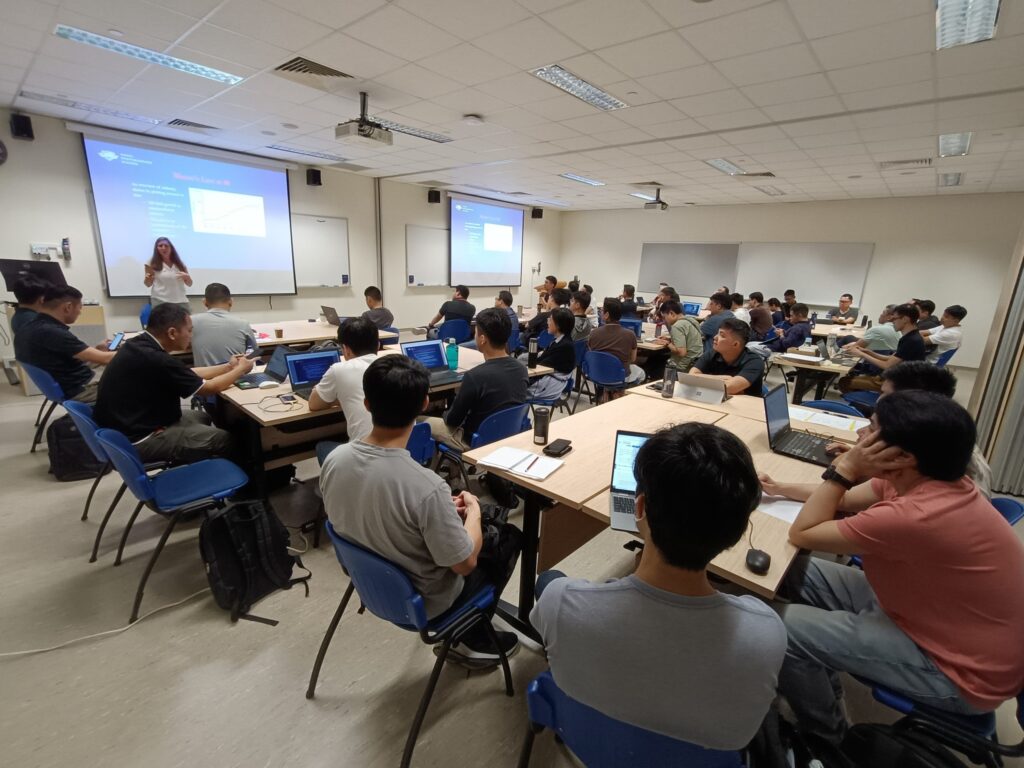
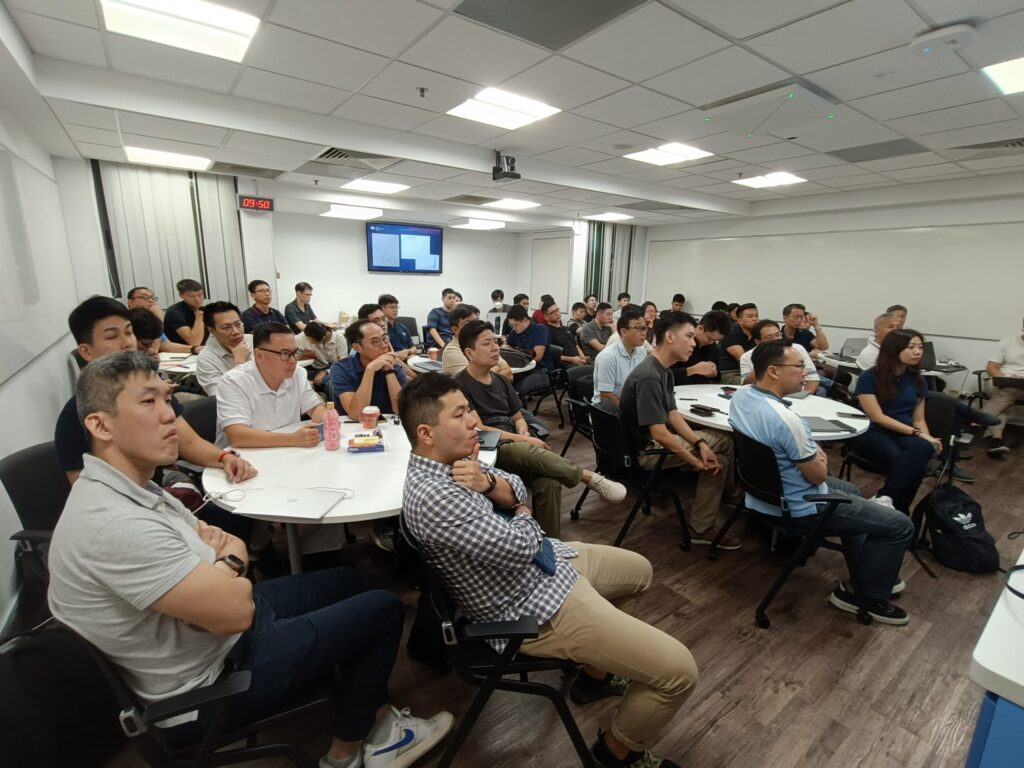
TDSI’s Executive Course “Generative Artificial Intelligence”
Artificial Intelligence (AI) technologies have been widely adopted in operations and work processes/ systems at the national level and in various industries. Generative AI is the latest cutting-edge technology that has been launched to extreme popularity, with progressive adoption by enterprises and industries because of its capabilities that can boost productivity and value-add decision-making, alongside many other deployment opportunities. Recognising the increasing importance of Generative AI for the defence sector, TDSI organised the executive course on this in-trend technology for the Singapore defence technology community to equip them with the fundamental knowledge of key concepts and applications of Generative AI, included algorithms such as generative adversarial networks (GANs) and variational autoencoders (VAEs). Course participants learnt how Generative AI could enhance military operations, from synthetic training data generation to scenario planning and decision support systems. This course is well-recognised by the Professional Engineers Board and qualified for 12 Professional Development Units.
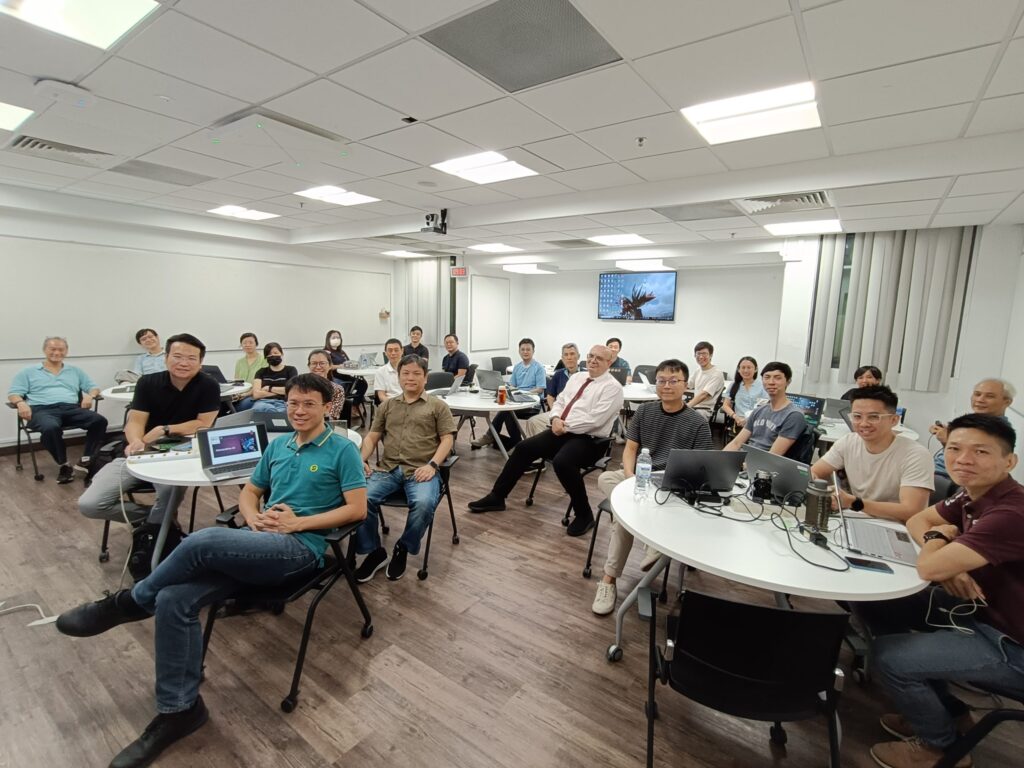
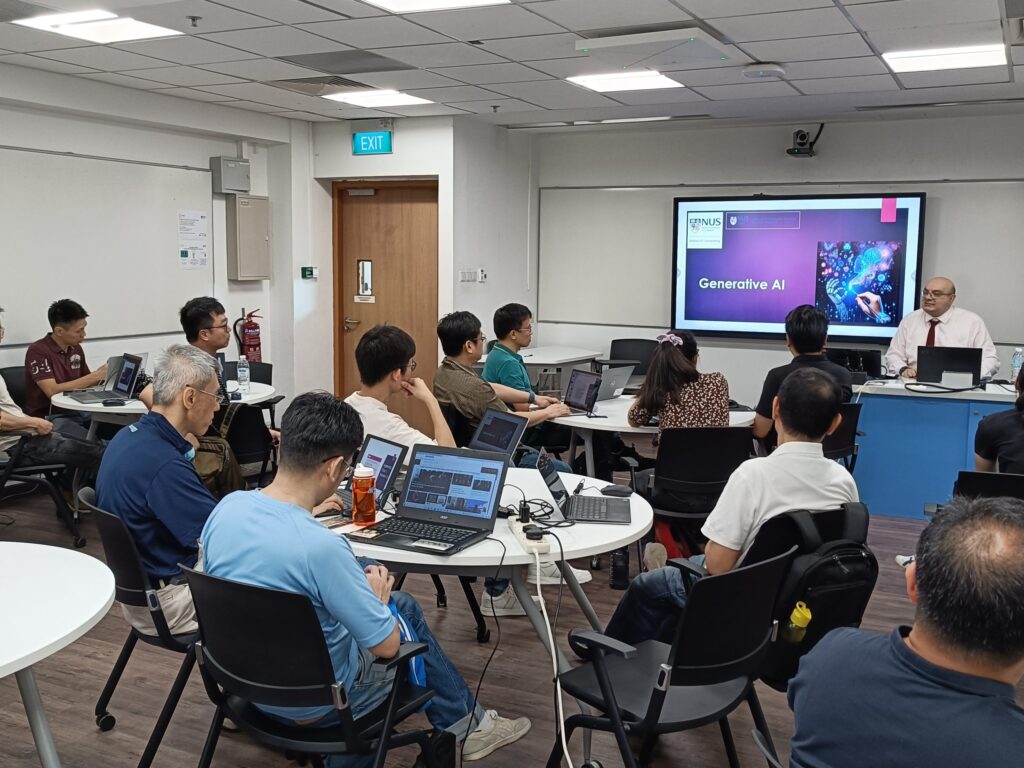
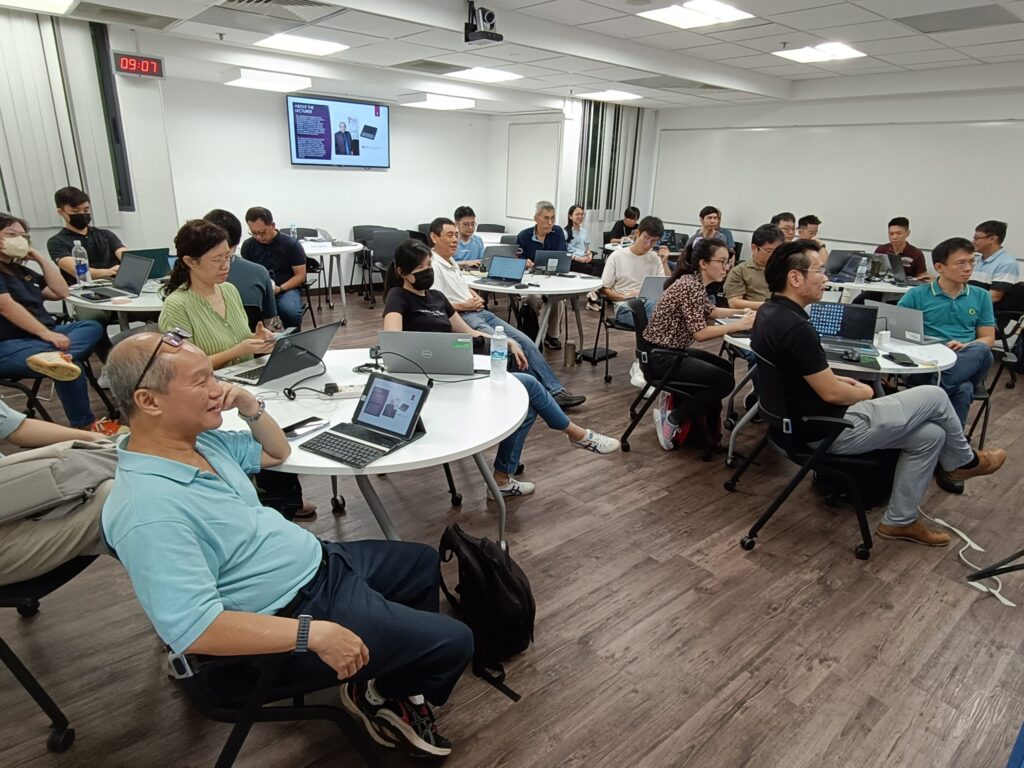
TDSI’s Executive Course “Swarm Intelligence and AI-Driven Unmanned Aerial Systems”
Swarm intelligence has become increasingly important for the defence community to learn as the technology is reshaping how autonomous systems operate in complex and contested environments. It is strategically important for the defence professionals to understand swarm intelligence technology to gain operational advantage, and with technology readiness, to ensure resilience and shape the future of warfare. Swarm intelligence is also a dual-use technology that could be applied from search-and-rescue and disaster response to maritime surveillance, making it essential for multi-domain operations. This 3-day intermediate-level course of TDSI focused on the fundamental and advanced concepts of multi-agent autonomous systems in the context of aerial swarms, specifically on the latest state-of-the art and practical applications. The course also provided a comprehensive overview of robotics and multi-agent systems, swarm formation, communications, task scheduling and allocations, swarm operations, as well as applications for heterogeneous systems and an introduction to game theory.
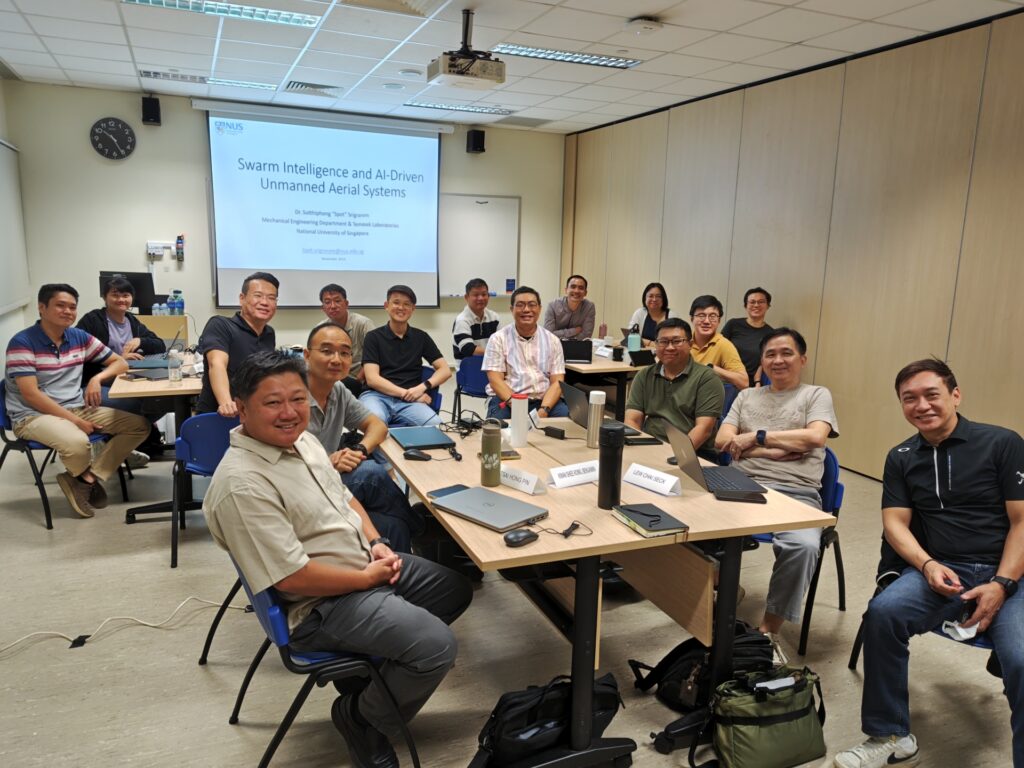
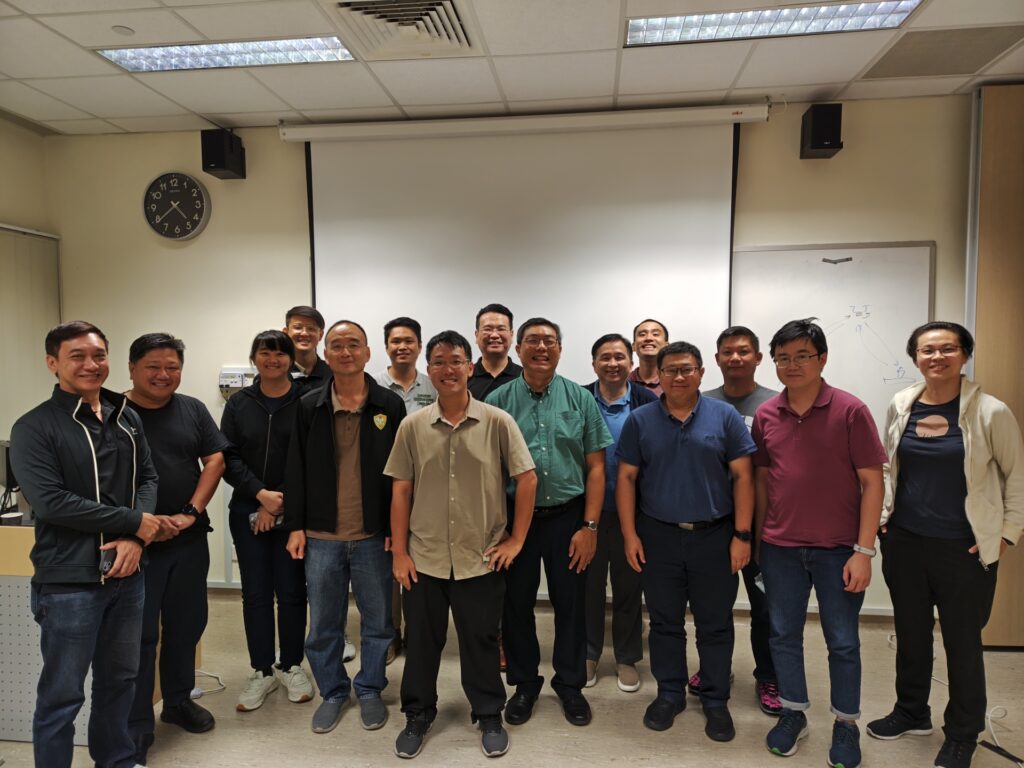

Bio-Inspired Flight and Its Application in Flying Robots
Overview
The birth of manmade flying machines was inspired by avian species like birds and insects. However, after the early success in attaining manned flight, we had parted ways with the nature. Unlike the nature flyers that are highly manoeuvrable, and configurable, manmade flying machines are designed as a form of transportation which operate at a rather constant flight envelope, namely take-off, ascend, cruise at a specific altitude, descend, and land.
The knowledge of aircraft design has maturely developed around this philosophy for decades until a new breed of flying machines were born. These machines are unmanned, and their flight envelopes varies based on missions. Due to the availability of miniature electronics, the size of unmanned flying machines has also grown smaller, hence operating at low Reynolds number regime. The requirements of being able to work optimally at different flight envelopes and low Reynolds number has driven the attentions of the flight science community back to the nature for inspiration. In this seminar, we look into the various aerodynamics and flight dynamics phenomenon of bio-inspired flights and the experience behind the development of a tailless flapping wing micro-air-vehicle.
Learning Outcome
Course Outline
Who Should Attend
Lorem ipsum dolor sit amet, consectetur adipiscing elit. Ut elit tellus, luctus nec ullamcorper mattis, pulvinar dapibus leo.
Speakers
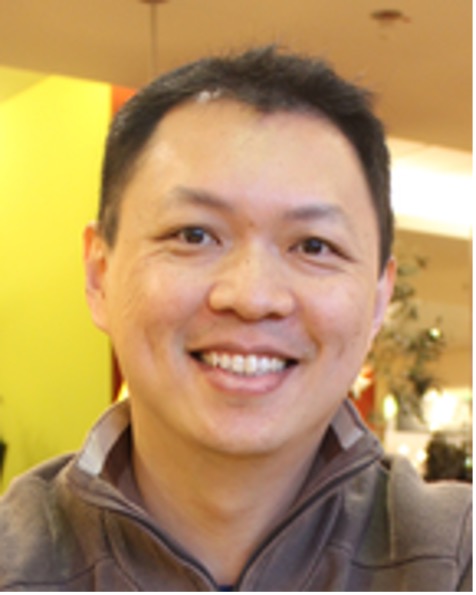
Dr. Chan Woei Leong
Dr. Chan Woei Leong, Ph. D. is a Senior Research Scientist at the Temasek Laboratories of the National University of Singapore. Dr. Chan received Bachelor degree from Universiti Sains Malaysia in Aerospace Engineering, and his Master degree and Ph.D. from the National Cheng Kung University, Taiwan in Aeronautical Engineering. He had been involved in fixed-wing unmanned aerial vehicle (UAV) research during his post-graduate study. He then joined the SIM University in Singapore as a Research Associate where he started his involvement in flapping wing micro-air-vehicle (MAV) research in 2011. He continues to pursue insect-inspired MAV design after he joined the National University of Singapore (NUS). He is one of the core members of the flapping wing MAV research team in NUS, which is one of the few teams in the World who have designed, built, and flown a tailless flapping wing MAV.
Apart from his duty on research, Dr. Chan also holds a joint appointment in the Department of Mechanical Engineering as teaching associate. His undergraduate student team had won a few awards in local and regional competitions, including first place in the flapping wing category of the 2017 Taiwan Innovative Unmanned Aircraft Design Competition, and first and second place in the unconventional category of the 2018 and 2019 Singapore Amazing Flying Machine Competition respectively.
His diverse research interests include bio-inspired flight, wind load on trees, and aerodynamics design and testing. He is currently the principal investigator of a research project focusing on the development of bird-inspired unmanned air vehicle.
Details
- 04 Aug 2021, 2:00 pm - 3:00 pm
- 1 hour
- Online Zoom
Status
This event is now closed.
